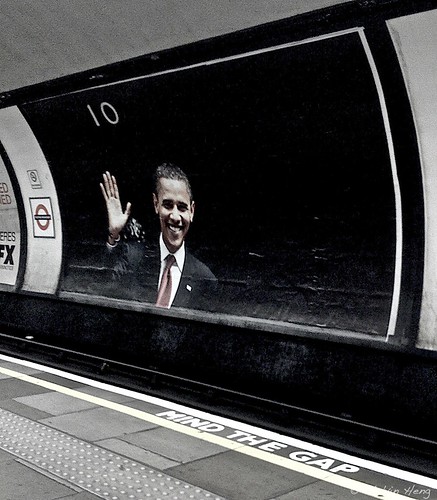“There’s an issue here, I think, where lots of people are assuming a right over these things, I think people have got a bit confused about ‘rights’ issues, ‘we all have a right to cheap flights, or cheap alcohol, or cheap meat’ but these things are not rights, and actually where they’re detrimental to society as a whole I think we need to look at them.” Marcus Brigstocke, Question Time 26/11/09
Yesterday we saw the president of the COP15 summit resign, in the past few days we’ve seen rich countries try to rescind on the legally-binding Kyoto protocol, promises on critical deforestation (20% of global emissions) destroyed, and little to no progress on what is widely considered the last chance for our world to act as one to limit the potentially disastrous effects of man-made climate change.
So this looks like the question that we may have to ask now:
What do we do when it fails?
What do we do when our governments let us down? When the representatives of our world stand and suggests that they can conceive of the damages of the 1-2% GDP necessary to prevent run away climate change, but not in the 5-20% that no deal is likely to cost us. When they have lost sight of the fact that these petty discussions about money amongst developed countries for whom ‘growth’ has become synonymous with ‘good’, should be nothing to all the deaths, refugees, famine, drought, flooding and severe weather events that are taking second place to the pounds the dollars the yen, the made up values, traded through the air.
It may be up to us.
This may not be a bad thing. What has been less publicised (and much more persecuted) is the open sustainability forums and communities in Copenhagen, the 60-100,000 protestors walking through London, placards held high, the several thousand councils and organisations, schools and businesses, and tens of thousands of individuals who have signed up to 10:10, and the recent survey that revealed 75% of British voters believe “world leaders are on an important mission at the climate change conference in Copenhagen” (source).
I have spoken before about how I believe it is time for us to reclaim grassroots politics, to change top down political posturing into bottom up action. And I don’t mean the important but inactive protest actions of closing down power stations or stalling shipping routes (I do think these kind of media events [there’s no denying that’s what they are] are very valuable in raising issue awareness). What I mean is us, all of us, generating positive personal and community lead actions to reduce our own emissions, and to encourage others too. 75% of us currently support a deal in Copenhagen. People are always moaning about the ‘Nanny State’. Well now it’s time to grow up. Now it’s time for us to take responsibility for our own methods of living. Let’s return to a true meaning of ‘rights’.
You do not have a right to cheap flights, to travel, to meat in every meal, to fizzy drinks, or to change your wardrobe every season. These are luxuries. Unsustainable ones. We need to break the bonds that capitalism has sold us. Your rights are to equality, to lack of persecution, to a standard of living adequate for health and well-being, to life and liberty. You do not have the right to impinge on the rights of others. Our growth driven profligacy is doing just that. Food riots, climate refugees, flooding, this is happening now. Governments can legislate – and it is important that they do so – to curb the emissions of big business, of public services, and of energy policies, but if they don’t, we still have the power to affect change.

